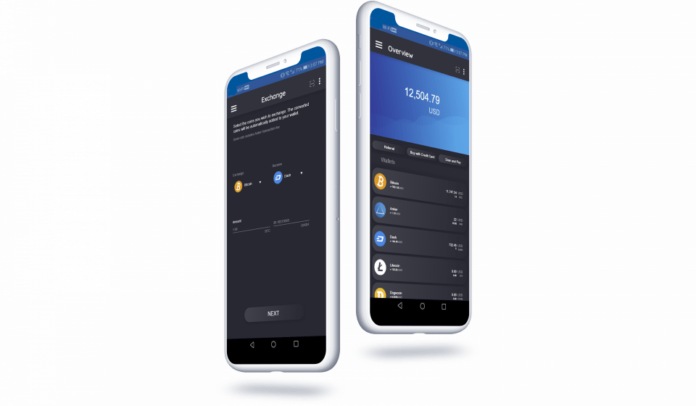
AnkerPay is a South African based startup building cryptocurrency and blockchain products and services for emerging markets.
In this article, we review the AnkerPay ecosystem, which includes AnkerPay wallets, ATMs, POS terminals, Anker coin, and blockchain identity solutions.
AnkerPay is based in Cape Town, South Africa, and was established in 2018 with a primary focus on distributed ledger technology.
The ecosystem provides a range of products and services that are a perfect fit for individuals, small or large businesses looking to accept or integrate cryptocurrencies.
Here is an in-depth review of AnkerPay:
AnkerPay Wallet
The most accessible product in the AnkerPay ecosystem is the AnkerPay wallet. The wallet is available for Windows, iOS, and Android and supports Bitcoin (BTC), Ethereum (ETH), Litecoin (LTC), Dash, Dogecoin (DOGE), and ANK token.
Switch is a feature on the AnkerPay wallet that allows users to exchange cryptocurrencies on the go. What’s more, you can use AnkerSwaps to make cross-chain exchanges while sending payments.
For instance, if you want to send Litecoin to a friend but you have bitcoin. AnkerSwap allows you to send your bitcoin but completes an exchange to Litecoin for the receiver inside the application without any intermediaries.
Another positive about the AnkeyPay wallet is that it is non-custodial. This means that you have full control of your private keys/seeds and funds in the wallet.
AnkerPay POS Terminal
AnkerPay also has a point of sale (POS) system. A point of sale terminal (POS terminal) is an electronic device used to process payments at retail locations.
The AnkerPOS terminal provides utility for merchants and people who want to spend cryptocurrency at stores or shops. It also includes the functionality for buying and selling cryptocurrency.
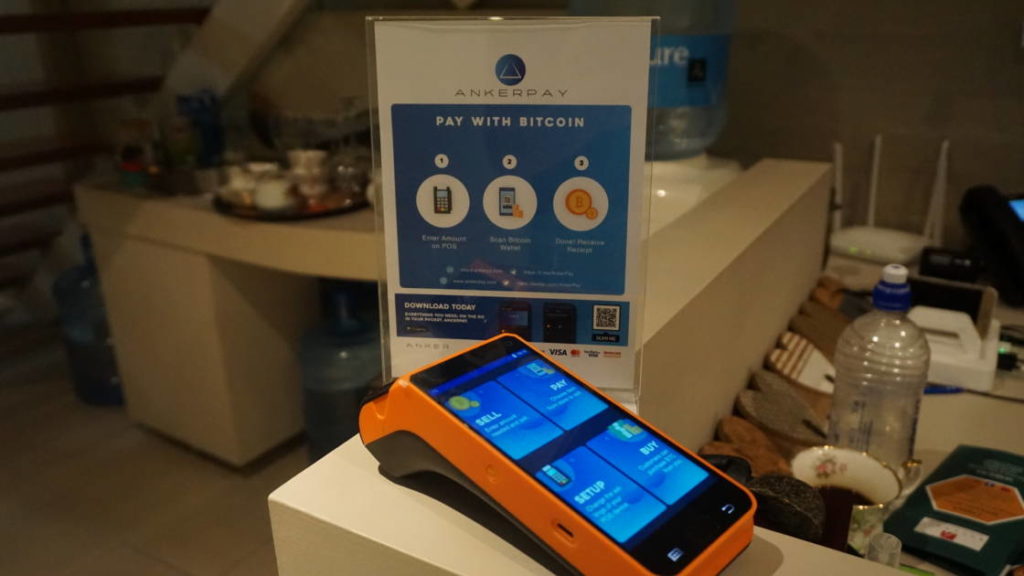
For merchants like owners of restaurants, coffee shops, auctioneers, casinos, AnkerPOS comes in handy since it allows you to accept cryptocurrency payments and track them using the AnkerPay software.
Settlements on AnkerPOS happen in Rand (ZAR), which prevents the risk of fluctuation in a highly volatile market. Some merchants can also use the device for selling and buying bitcoin like an ATM aside receiving payments.
Point-of-sale and physical devices are very central to adoption in emerging markets because of visibility and accessibility.
Currently, the POS device supports only bitcoin with additional cryptocurrencies to be added soon. The AnkerPOS App will also be available for all Android devices, that will allow any shopowner to accept Bitcoin Payments at their store.
AnkerPay ATMs
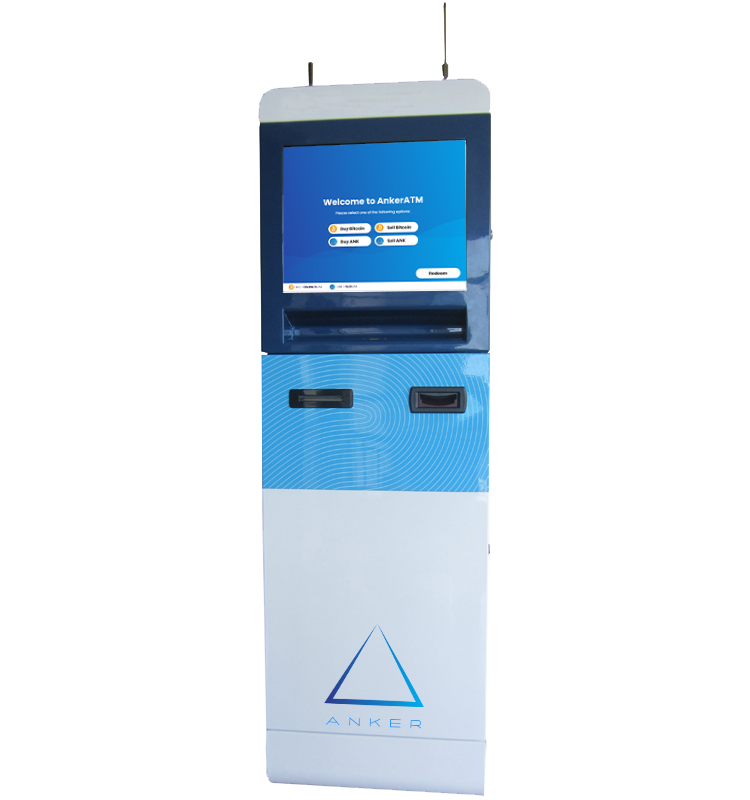
The AnkerPay project also builds cryptocurrency ATMs. Bitcoin ATMs, despite their excellent use case, have seen little penetration into developing markets.
This is largely because of the cost involved in getting a Bitcoin ATM built and installed. Per the industry standard, the cryptocurrency ATMs cost from $12000 and $8000.
AnkerPay specializes in building industry standard ATMs that are affordable. These ATMs also cuts cost by removing the need for extra licensed software.
All ATMs come with AnkerPay software, which is optimized to put the control of several devices in the hands of owners in one application. The current ATM software supports bitcoin (BTC) and the ANK token, with more coins to be added soon.
Most importantly, the user interface of Anker ATMs is simple for users to understand and navigate. Further, it makes it easy for ATM owners to remain compliant with various laws in their jurisdiction.
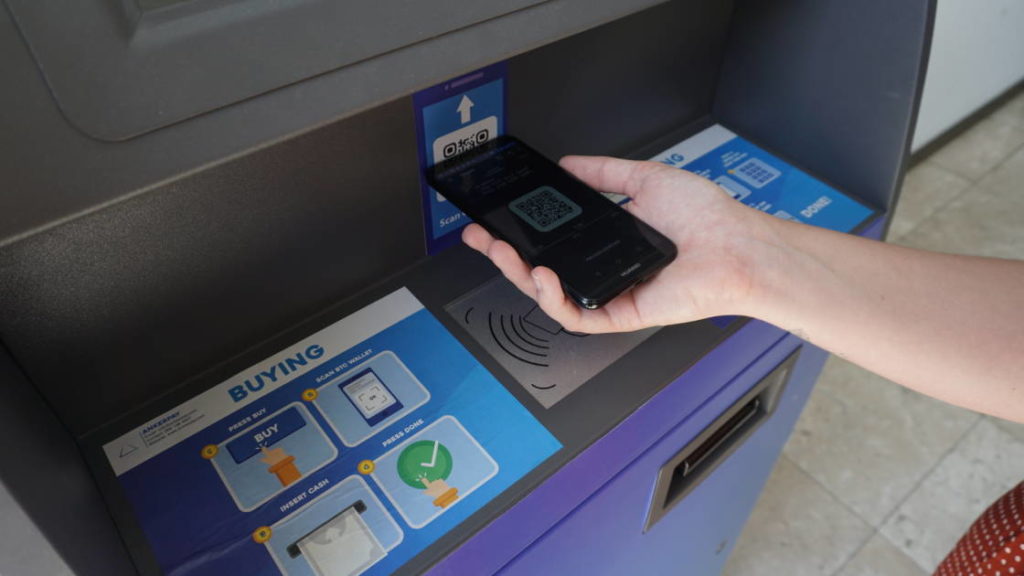
Beyond making ATMs, AnkerPay also deploys some of its devices across Africa. Per the status quo, Anker has two ATMs in South Africa, one in Cape Town and Stellenbosch, respectively.
AnkerPay also intends to install new Bitcoin ATMs in Bloemfontein, Durban, and Pretoria. Other African countries currently on their radar include Nigeria (Lagos and Abuja), Ghana (Accra and Kumasi), Kenya, and Uganda.
AnkerID
Identity has also become a significant hurdle in this age of digitized finance. In the bitcoin and cryptocurrency world, our identities on the blockchain are tied to addresses that are long and sometimes confusing.
To make it easier for people to transact in a more trusted and less risky environment, AnkerID connects your email to your cryptocurrency address.
Anker Coin (ANK)
Anker’s native cryptocurrency, Anker coin (ANK) can be used to pay fees of transactions made, tokens developed, and smart contracts executed on the AnkerChain.
AnkerChain is a blockchain created to facilitate adoption by making it easier for developers to construct and build their own tokens and smart contracts using Python.
AnkerChain is currently on testnet and is set to go live in the first half of 2020.
Platform Overview
Cryptocurrencies supported on AnkerPay :
- Bitcoin (BTC) – ATM, POS, and wallet.
- Anker coin (ANK) – ATM and wallet.
- Ethereum (ETH) – wallet.
- Bitcoin Cash (BCH) – wallet
- DASH – wallet.
- Litecoin (LTC) – wallet.
- Dogecoin (DOGE) – wallet.
Supported African countries: South Africa

At the heart of the entire AnkerPay project is the drive to make a social impact. This is an effort to improve the conditions of people around them through building impactful technology in the blockchain and cryptocurrency industry.
If you are looking for a blockchain company to work with as part of your project in emerging markets or you an individual looking for personal blockchain solutions or hardware, AnkerPay is a great candidate.
| Project Details | |
| Website | https://ankerpay.com/ |
| Social Media |
You Should Also Read:
South Africa’s Anker Wallet and POS Adds DASH
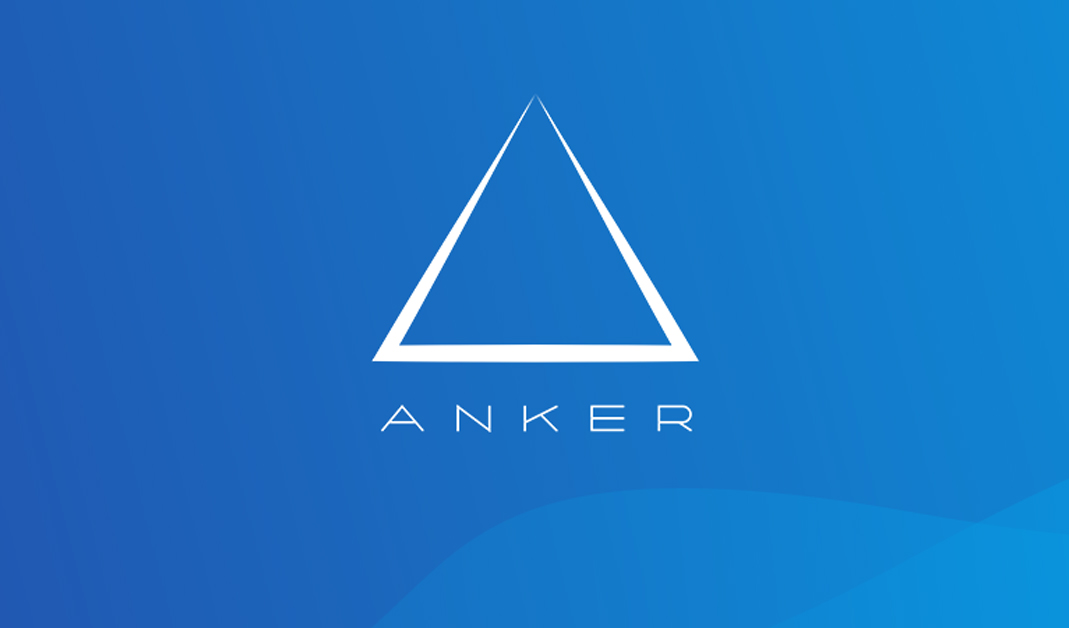
The post AnkerPay Review – Wallet, Bitcoin ATMs and POS Solutions appeared first on BlockNewsAfrica.

TheBitcoinNews.com – Bitcoin News source since June 2011 –
Virtual currency is not legal tender, is not backed by the government, and accounts and value balances are not subject to consumer protections. TheBitcoinNews.com holds several Cryptocurrencies, and this information does NOT constitute investment advice or an offer to invest.
Everything on this website can be seen as Advertisment and most comes from Press Releases, TheBitcoinNews.com is is not responsible for any of the content of or from external sites and feeds. Sponsored posts are always flagged as this, guest posts, guest articles and PRs are most time but NOT always flagged as this. Expert opinions and Price predictions are not supported by us and comes up from 3th part websites.
Advertise with us : Advertise
Our Social Networks:
Facebook Instagram Pinterest Reddit Telegram Twitter Youtube










